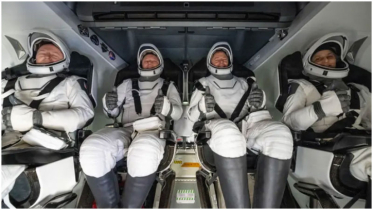China\`s EV makers make their move on Europe
China's electric carmakers entering into Europe_ hoping to catch traditional auto giants cold and seize a slice of a market supercharged by the continent's drive towards zero emissions.
Nio Inc (NIO.N)_ among a small group of challengers_ launches its ES8 electric SUV in Oslo on Thursday - the first foray outside China for a company that is virtually unheard of in Europe even though it's valued at about $57 billion.
Other brands unfamiliar to many Europeans that have started selling or plan to sell cars on the continent include Aiways_ BYD's (002594.SZ) Tang_ SAIC's (600104.SS) MG_ Dongfeng's VOYAH_ and Great Wall's (601633.SS) ORA.
Yet Europe_ a crowded_ competitive car market dominated by famous brands_ has proved elusive for Chinese carmakers in the past. They made strategic slips and also contended with a perception that China_ long associated with cheap mass-production_ could not compete on quality.
Indeed_ Nio Chief Executive William Li told Reuters he foresees a long road to success in a mature market where it is "very difficult to be successful".
Chinese carmakers may need up to a decade to "gain a firm foothold" in Europe_ the billionaire entrepreneur said - a forecast echoed by He Xiaopeng_ CEO of electric vehicle (EV) maker Xpeng (9868.HK) who told Reuters his company needs 10 years "to lay a good foundation" on the continent.
These new players_ many of which have only ever made electric vehicles_ believe they have a window of opportunity to finally crack the lucrative market.
While electric car sales in the European Union more than doubled last year and jumped 130% in the first half of this year_ traditional manufacturers are still gradually shifting their large vehicle ranges over to electric and have yet to flood the thirsty market with models.
"The market is not that busy yet_ if you compare it with combustion-engine models where each of the major carmakers has a whole range of vehicles_" said Alexander Klose_ who heads the foreign operations of Chinese electric vehicle maker Aiways.
"That is where we think we have an opportunity_" he added on a drive around Munich in a U5_ a crossover SUV on sale in Germany_ the Netherlands Belgium and France.
The U5 starts at 30_000 euros ($35_000) in Germany - below the average new car price and most local EV prices - before factoring in 9_000 euros in EV subsidies - and comes in just four colours and two trim levels to minimize costs.
'GERMAN PEOPLE BUY GERMAN CARS'
As Chinese carmakers gear up to enter Europe_ they are trying out different business models_ from relying on importers_ low-cost retail options or building up more traditional dealerships.
The new reality that top Western carmakers like BMW (BMWG.DE) and Tesla Inc (TSLA.O) now produce cars in technological powerhouse China has likely undermined past perceptions of low quality workmanship - though they can be hard to shake.
Antje Levers_ a teacher who lives in western Germany near the Dutch border_ and her husband owned a diesel Chevrolet Orlando but wanted a greener option. They bought an Aiways U5 last year after plenty of research to fend off criticism for not buying local_ and loves its handling and low running costs.
She said people had told her: "You can't buy a Chinese car_ they're plastic and cheap and do not support German jobs." But she feels that is no longer true in a global car industry where you find German auto parts in Chinese cars and vice versa.
"German people buy German cars_ so to buy a Chinese car you need to have a little courage_" the 47-year-old added. "Sometimes you just have to be open for new things."
.png)




